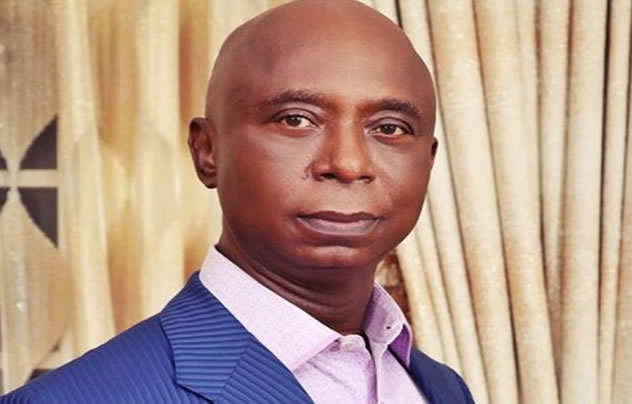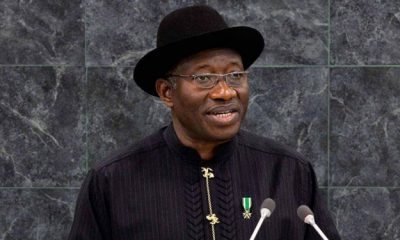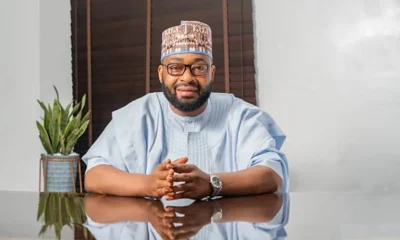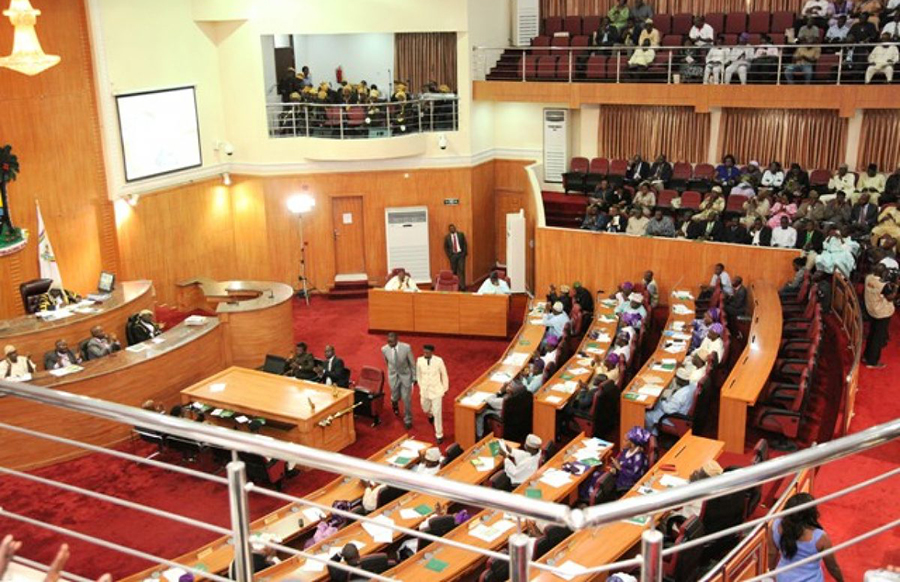Uncategorized
INEC Votes N355bn for 2023 Elections
By Eze Okechukwu, Abuja
The Independent National Electoral Commission will spend N355 billion in 2023 for general elections and annual budget.
Already, N305 billion has been approved for the conduct of the 2023 general elections by the National Assembly.
But, the Electoral body has budgeted another N50 billion for its annual budget in 2023, an increment of N10 billion compare to 2022 budget which was N40 billion as approved by the National Assembly.
In the 2023 budgeted submitted to the Senate Committee on Electoral Matters for consideration, N2.6 billion was earmarked for off season election like Kogi, Imo and Bayelsa Governorship elections.
The elections for the three states will hold on November 11, 2023.
According to INEC, N2.6 billion will cater for provision of elections, referenda and recalls expenses such as: Operation dept cost covering, printing of ballot papers, result sheets, printing of forms and Envelopes, arterials and supplies, logistics expenses, honorarium for officials, supervision, RAC preparation, security/intervention support etc
“Election ICT system support, printing of voters register for off season and bye elections, F$A Election fund management logistic.”
In the 2023 Budget of the agency, N50 million will be spent to buy firefighting equipment, motor Vehicles – N150 million, N250 million to repeat offices and residential building.
In September, the Independent National Electoral Commission (INEC) said the cost of logistics, highly-secured ballot papers, allowances for personnel, among other reasons were responsible for the huge funds used in conducting elections in Nigeria.
INEC Chairman, Prof. Mahmood Yakubu, who stated this at an interactive session with the Nigerian Guild of Editors (NGE) tagged ‘The Editors’ Forum’ in Lagos, however, said that Nigeria’s elections were not the most expensive.
“In France, the ballot paper is like an A4 sheet of paper, because it is unthinkable that anybody in France will snatch the ballot paper.
“But here in Nigeria, we print ballots papers in currency quality and we entrust them to Central Bank of Nigeria.
“The ballot papers will now be move with all the protocols and security according to the movement of the national currency, just to protect the process.
“This is not going to be done cheaply. So, we pay for lack of trust in the system,” the INEC boss said.
He said that the last elections conducted in Ghana, Kenya and Guinea-Bissau were more expensive, if the voters’ population was considered per capita in relation to the cost.
“The cost in Nigeria, I think, is nine dollars per head (N4, 500) as against what happens in other countries. Ours is not even the most expensive.
“The cost of elections in Nigeria in 2023 is N305 billion of the national budget of over N17 trillion.
“The cost of elections is just 1.8 per cent, not even up to two per cent of the national budget.
“If we remove the technology cost, 60 per cent of the cost of elections in Nigeria is spent on logistics and personnel allowances,” he said.
Uncategorized
Crude Oil Theft: Nwoko Seeks AI Powered Surveillance, Regional Security

Sen. Ned Nwoko, the Chairman of the Senate Ad hoc Committtee on Crude Oil Theft, says Nigeria must implement a robust technological framework to curb crude oil theft in the country.Nwoko in an interview in Abuja on Monday, said that crude oil theft in the Niger Delta region had long plagued the nation, resulting in severe economic losses, environmental degradation, and national insecurity.
He said as a country heavily reliant on oil revenues to fund its budget and development, it was imperative that her national assets were treated with the seriousness they deserve, adding that it was time to reclaim control of her oil assets. He therefore advocated for the deployment of AI-Powered Surveillance ranging from drones to predictive analytics to monitor the nation’s pipelines and facilities.He also advocated for the strengthening of the country’s regional security, noting that oil theft thrives in insecurity.‘’Parallel investment in regional peace and stability is crucial. The host communities must be incorporated into the system, thereby making them have a sense of belonging in the oil and gas sector by engaging them into meaningful infrastructural development.‘’There is also the need for collaboration with Tech Firms. We must actively engage global and local tech companies with proven capacity to deliver real-time monitoring and risk detection.‘’Institutional commitment is also needed to curb crude oil theft; NNPCL and other stakeholders must be held accountable.“Monitoring should not just be technological, it must include institutional transparency.‘’Adopting Saudi Arabia’s corporate social responsibility method in collaborating with the oil and gas host communities will also go a long way in tackling crude oil theft.“If Nigeria adopts these strategies and embracs AI-driven innovation, we can reclaim control of our oil assets, meet our OPEC quota, and catalyse real economic development,” the lawmaker said.According to the chairman, senate ad-hoc committee on crude oil theft, we can no longer pretend we don’t know the cause or the cure of our problems.‘’It’s time to stop looking away. We must be intentional, patriotic, and honest. We must emulate nations whose progress is not mythical but practical. Let us do what is right for Nigeria, for now and for the future.‘’The NNPCL and the various international and national oil companies (IOCs and NOCs) operating in the sector must act decisively‘’Under the supervision of patriotic leadership, they must adopt advanced technological systems to protect our oil infrastructure and deter sabotage.’’Nwoko noted that In 2022, the then Group Managing Director of the NNPCL, Mele Kyari, assured Nigerians of efforts to adopt a model similar to that of the Saudi Aramco to combat oil theft and pipeline vandalism.He said that Kyari had admitted then that while Nigeria’s system was not yet as advanced as Aramco’s, the goal was to eventually match their level of sophistication.‘’Sadly, we are still far from that benchmark. As a nation, we must summon the courage to call a spade a spade.‘’We cannot continue with half-measures. Every meaningful step that can rescue this country from the stranglehold of economic sabotage must be taken without delay.‘’To move forward, we must learn from countries that have gotten it right. How did developed nations build systems that effectively secure their oil and gas infrastructure? What strategies and technologies do they use?, he added. (NANNEWS
Ododo Clears N98.8 Billion Debt, Tasks Officials On Grassroots Engagement, Local Patronage

From Joseph Amedu, Lokoja
Governor Ahmed Usman Ododo has charged government officials to remain close to the grassroots and ensure constant engagement with the people, noting that such connection is key to responsive governance. Ododo gave the charge during the State Executive Council Meeting held in Lokoja on Monday.
“We are in government to serve the people, and that means staying connected to their needs and aspirations,” the Governor said. As part of efforts to boost the local economy, the Governor also directed all government officials to wear Made-in-Kogi fabrics as a show of support for indigenous industries. He encouraged Kogites to take pride in local products and lead a cultural and economic renaissance from within. Also Briefing journalists after the meeting, the Commissioner for Information and Communications, Hon. Kingsley Femi Fanwo, said the administration is committed to making governance more visible and impactful. “Governor Ododo is driving a government that listens, learns, and leads from the grassroots. His directive on Made-in-Kogi fabrics is a strategic move to grow our economy and export our identity,” Fanwo said. On infrastructure, Fanwo disclosed that perimeter fencing at the Confluence University of Science and Technology (CUSTECH), Osara is 90% completed, while both male and female hostels have been completed and are already housing students. Similar projects at the Kogi State University, Kabba, are progressing satisfactorily. To improve public safety, the Council also approved a bill to restrict the movement of heavy trucks during peak hours. Another bill was approved for the establishment of the Kogi State Agency for Climate Change as part of a forward-thinking response to global environmental challenges. In a separate briefing, the Commissioner for Finance, Budget and Economic Planning, Mukadam Asiwaju Asiru Idris, announced that the Ododo administration has fully liquidated N98.8 billion in debts inherited from previous administrations within just 15 months. The breakdown includes,N8 billion in bonds from the Idris Wada administration,N50.8 billion salary bailout from the last administration,N10 billion ECA-backed infrastructure loan,N15 billion infrastructure loans from Zenith Bank and another N15 billion from UBA Plc.“This is a landmark achievement. His Excellency Governor Ododo has demonstrated fiscal discipline and commitment to economic recovery. Within 15 months, we have cleared N98.8 billion in inherited debt,” Idris said.He added that Fitch Ratings has upgraded Kogi State’s credit rating from ‘B-’ to ‘B’, with a stable outlook, citing prudent financial management. As of September 30, 2024, the state’s debt profile stands at N40.5 billion, placing it on a strong path to debt sustainability.Uncategorized
France to Partially Ban Smoking in Public Areas to Protect Children

France is to ban smoking in public outdoor spaces, including beaches, parks, school zones, bus stops and sports facilities starting July 1 as part of a nationwide effort to protect children.
Health Minister Catherine Vautrin said where there are children, tobacco must disappear.
She added that plans to lower the nicotine content in vaping products and reduce the number of flavours available.
“Anyone who violates the new smoking ban will have to pay a fine of 135 euros (153 U.
S. dollars).“The regulation is to be monitored by the municipal police.
“My goal is both simple and deeply ambitious: to ensure that children born in 2025 become the first smoke-free generation,” the minister said.
The new nationwide smoking restrictions, many of which were already in place at the local level, are designed to support that vision, she said.
However, outdoor seating at cafés and the use of e-cigarettes is exempted from the ban, but young people should no longer smoke outside schools.
The minister said that the size of the area around schools where smoking would no longer be permitted in future was still being determined.
The regulation should also prevent pupils from going outside the building to smoke.
In 2023, 15.6 per cent of 17-year-olds said they smoked, compared to twice as many 10 years earlier.
Smoking remains the leading preventable cause of death in France, responsible for 75,000 deaths annually or more than 200 per day, the health minister added.
Vautrin noted that it has been proven that prevention reduces the risk.
She also noted the economic toll, with cancer costing the country 150 billion euros per year.
Vautrin emphasised that the right to smoke is not being abolished.
“People are free to smoke at home or in designated areas. But that freedom ends where a child’s right to clean air begins.” (dpa/NAN)

















